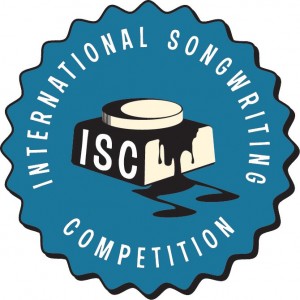IMRO is currently engaging with the Copyright Review Committee and the government to ensure a balanced set of measures is introduced so that new enterprises in the off-line and online environment have easy access to our repertoire and that royalty fees paid for such use are fair and reasonable.
Our central objective in this review process is to ensure that Ireland possesses a modern up to date copyright system that delivers a balance between technology based industries and consumers on the one hand and fair incentives for the creative sector on the other.
Copyright – the statutory means to reward creativity – is the core principle underlying this value chain. The general tenor of the terms of reference of the Copyright Review and by extension the consultation paper suggests that copyright is a barrier to innovation. Innovation, it would appear, only occurs in the technology sector. This ignores the reality that innovation firstly takes place at the creative level and is indeed the very essence of the creative economy. Musical creativity of itself is derivative in nature and the current copyright legislation provides adequate room for creativity to flourish whilst at the same time protecting and rewarding those who innovate. The success of Ireland’s creative sectors in areas such as music, film, literature and now computer gaming is testament to the flexibility inherent in the existing system.
We fundamentally disagree that weakening copyright law will somehow benefit an economy with such a dependence on creativity. However, even if we agreed with such a proposition, there is no logic whatsoever in joining with other EU territories to campaign for the same relaxations. Where is the competitive advantage that the Review Committee seeks if our other participant members in the EU seek similar benefits? In any case we should point out at the outset that the EU Member States are themselves parties to the Berne Convention and some of the exceptions mooted are contrary to the provisions of this Convention. The EU will therefore not be in a position to modify any existing EU directives that run contrary to the Berne Convention, and Ireland’s efforts in this regard would be futile. The importance of the creative industries to the EU and Ireland in particular are best summarised from the Tera Consultants’ Report “Building a Digital Economy: The Importance of Saving Jobs in the EU’s Creative Industries”
“The production and distribution of works by creative industries, including movies, music, television programmes and software, has been recognised as having a positive effect in economic growth and the creation of jobs. Unfortunately, over the last decade digital piracy (copyright infringement of digital media) has increasingly threatened the economic performance of the industries responsible for these creative works. For this reason, stemming the rising tide of digital piracy should be at the top of the agenda of policymakers in the European Union and elsewhere. But to make well-informed decisions in this area, policymakers would benefit from understanding the extent of the economic contributions of these industries and of the losses resulting from digital piracy.”
Their analysis determined the following:
• In 2008 the European Union’s creative industries, based on the more accurate and comprehensive definition, contributed 6.9%, or approximately €860 billion, to total European GDP, and represented 6.5% of the total workforce, or approximately 14 million workers.
• In 2008 the European Union’s creative industries most impacted by piracy (film, TV series, recorded music and software) experienced retail revenue reduction of €10 billion and losses of more than 185,000 jobs due to piracy, largely digital piracy.
• Based on current projections and assuming no significant policy changes, the European Union’s creative industries could expect to see cumulative retail revenue losses of as much as €240 billion by 2015, resulting in 1.2 million jobs lost by 2015.
In Ireland, according to the latest DKM Economic Consultants research entitled “The Economic Contribution of the Copyright Based Industries” (June 2012) copyright based industries play an important role in the overall economy.
DKM estimated that the core copyright industries in 2011 comprised 8,600 enterprises with 46,300 full-time equivalent persons employed (70,400 persons engaged), a turnover of €18.85 billion and gross value added (GVA) of €4.6 billion. The latter, which represents the direct economic contribution, is equivalent to 2.93% of GDP. This value is heavily dependent on copyright protection.
The copyright industries, taking account of direct and indirect impacts across the economy, represent 7.35% of total GDP which is equivalent to €11.50 billion. This figure includes the GVA (gross value added) of the range of industries whose primary function is to facilitate the creation, production, manufacture, distribution and sale of copyright content and other protected subject matter.
Total direct and indirect employment generated by the copyright based industries is estimated at 116,000, which represents 6.4% of total employment.
This is not only an economic argument. Many of the attractions of Ireland as a centre for foreign direct investment, as a tourist destination and the worldwide standing of Ireland as a source of creativity lies in our reputation as a culturally rich nation that nurtures, respects and rewards the creation of artistic works.
There is a very real danger that uninformed, poorly targeted or ideologically driven changes to copyright law could instead undermine growth, both for Ireland’s creative sector and those digital businesses dependent upon the valuable content produced by Irish creators. We need to distinguish between interested parties arguing for genuine requirements for reform, and those who would simply seek lower royalty fees, which will not result in increased economic activity but simply effect a transfer of resource from the creative sector to others.
Whilst the economic and technological aspects of entrepreneurship and innovation are important, concentration on these aspects in isolation is of concern, given the vital importance that copyright plays in the social and cultural contribution to Irish society. This aspect seems to have been largely ignored in this Review. Any proposed amendments need to be considered in the light of objective impact assessments of such measures.
In support of our assertion that the real barrier to innovation in the ICT sector is lack of access to capital, we refer to the following article written by John Dunne, co-founder of Intune Networks, the overall winner of The Irish Times IntertradeIreland Innovation Awards 2011. In his article entitled “Too Reliant on the likes of Intel, Google and Microsoft”, Mr Dunne states:
“The real barrier to success for those who have intellectual property and have developed and created something that addresses a global need, is the lack of venture capital to fund their growth. There are inadequate levels of finance available in Ireland. While there is more than €400 million notionally up for grabs through Enterprise Ireland venture capital funds, the problem that many start-ups find is that there is no real understanding – or appetite for – the kind of long-term investment that is needed to grow and develop a company that has the potential to become a global leader”.
Whilst we acknowledge that easier access to venture capital is outside the scope of the CRC’s terms of reference, we nonetheless believe that the Committee should bring this to the attention of the Minister for Jobs, Enterprise and Innovation.
We cannot find any evidence suggesting that current copyright law is a barrier to innovation.
Summary Position By IMRO On The Main Issues
The Copyright Council
We welcome the suggested establishment of a Copyright Council. This Council should be established on a statutory basis. We also commend the emphasis placed on public education on copyright, recommendations on best practice, and the entire process of ongoing copyright reform which in a rapidly developing marketplace is vital to all participants. We believe the independence of such a Council could play a very important role in helping the IP Unit draw up a policy framework on notice and take down procedures and counter notice and put-back procedures. The composition of the Council needs further discussion and its function and objectives need to be clearly defined. Such functions and objectives must not conflict with those of Government through the IP Unit and the Office of the Controller of Patents, Designs & Trade Marks (‘the Controller’). Given this we believe that the Council’s role should not extend to any dispute resolution issues.
The recommendations aimed at providing expertise and specialist jurisdictions in the District and Circuit Courts are welcomed, though we acknowledge that such proposals will have significant resource implications.
The Digital Copyright Exchange
The real problem for industries depending on intellectual property is one of enforcement. How can Ireland expect to attract creative industries and to act as a centre for trading IP assets if we do not provide an environment that both respects and protects the commercialisation of such assets? Promoting Ireland as a location for the International Digital Copyright Exchange on the one hand, while simultaneously relaxing the laws of copyright is inconsistent and sends confused messages to investors.
We do need greater clarity on what is being envisaged by the Committee as regards a Digital Copyright Exchange before we would give further comment on what seems at face value to be an idea worthy of pursuit. We also are aware of a parallel process underway in the UK and note the recent first report of the Digital Copyright Exchange Feasibility Study (http://www.ipo.gov.uk/dce-report-phase1.pdf). IMRO will support any practical initiatives in this area.
Exceptions to copyright
The 2001 Copyright Directive is quite explicit in terms of the list of exceptions contained therein and the list is exhaustive i.e. no other exceptions may be granted or applied by member states nor permitted under national law. This achieves legal certainty and the list itself is not mandatory, rather it was designed to accommodate various traditions pertaining throughout the EU at that time.
(i) Format shifting
We could support an exception in respect of format shifting so that consumers can enjoy the benefit of technology, subject to fair remuneration being paid to copyright holders and thereby fully complying with EU Copyright Directive and European case law. Such an exception should be limited to any copies format shifted to other devices, legally purchased and should not extend to cloud locker services which are fully licensable.
(ii) Educational exceptions
The licensing system currently in place in Ireland adequately takes account of the particular requirements of educational establishments, providing flexible solutions for copyright owners and users. Any further exception introduced in this area would result in a straight transfer of value (impeding innovation in the process) from the creative sector to the public sector. Such a proposal would not in any way aid innovation.
(iii) Fair Use
We believe that importing “fair use” provisions from the US will hamper innovation. The US has a better record of innovating, not because of a more lax copyright system but because of a deeply embedded culture of entrepreneurship, much deeper relationships between the business community and the University and educational sector, and wider availability of capital. Strengthening the links between academia, innovative enterprise, creativity, and encouraging wider access to capital are much better ways for Ireland to drive its knowledge economy forward in terms of both large and small enterprises. There is no evidence whatsoever that introducing fair use provisions will remove any barriers to innovation. We question how any policy recommendations can be made in this area without evidenced based impact assessment being undertaken in advance. We contend the following:
• Fair use is not compatible with the three step test in Berne;
• Fair use does not comply with the Berne Convention or TRIPS;
• Fair use contributes much more legal uncertainty than the fair dealing exceptions in CRRA;
• Due to this uncertainty, alongside the substantial penalties that attach to copyright infringement, the cost of establishing fair use is only feasible for very large, well resourced companies that seek to benefit from fair use provisions, hence it is of no benefit to small innovative start-ups.
• The fair dealing exception via Irish and EU law achieves a better balance between the uncertainties of a US style fair use doctrine, and a rigid application of a closed and inflexible list of exceptions and limitations;
• WIPO institutions have ruled on fair use and found it to be in breach of international law;
• The arguments made to support fair use are flawed, simplistic and fail to understand the position under US law;
• Fair use must be looked at in the context of demands for broader exceptions than those currently allowed under EU law;
• There are a lot more factors at play in how the US successfully innovates than fair use;
• There is no evidence to support the assertion that the absence of a fair use doctrine hinders Irish or EU innovation and much evidence that fair dealing provides no hindrance to innovation, but rather it has fostered it.
Registration of Licensing Bodies, licensing schemes and procedures regarding referrals to the Controller
We believe that the practices and procedures under the CRRA and The Copyright and Related Rights (Proceedings Before the Controller) Rules 2009 relating to registration of licensing bodies and referrals to the Controller, which have been in operation for 12 years, require review in a number of areas particularly around the registration of licensing bodies, the publication of licensing schemes, and the procedures for the referral to the Controller in the event of a licensing dispute. For all service companies, from start ups and SMEs to large corporations, the ability to obtain copyright clearance through collective licensing bodies is beneficial. This mechanism allows companies to develop a variety of new business models and get them to market without undue delays. IMRO requests that the interaction it has with these companies is made easier with the introduction of more efficient procedures under the Act as set out above. We call on the Review Group to recommend to the Minister the adoption of legislation as appropriate to effect such changes. This will help bring about a more efficient and productive copyright clearance framework in Ireland, which will protect and reward creativity while at the same time promoting and facilitating innovation.
Online infringements
We welcome the introduction of the recent Statutory Instrument. Clearly we have an issue in relation to enforcement of copyrights in the online environment. We cannot allow a situation to continue whereby copyright owners will have no option but to seek High Court injunctions in each separate instance of infringement in order to protect their copyrights from obvious piracy. This is unworkable even in the short term. We strongly support greater co-operation between the creative industries and the internet gate-keepers so that obvious abuses of copyright cannot continue with impunity.
Finally we believe our policy makers and the Minister should be given a real choice when the CRC issues its final report. The consultation paper provides draft legislation only in terms of one avenue being pursued. A more balanced approach is to provide the Minister with draft legislation for at least a choice of approaches. This will give the final report more objectivity and allow policy makers to make a more informed decision. In this regard we would refer the CRC to Recital 9 of the Information Society Directive which states that:
‘any harmonisation of copyright and related rights must take as a basis a high level of protection, since such rights are crucial to intellectual creation. Their protection helps to ensure the maintenance and development of creativity in the interests of authors, performers, producers, consumers, culture, industry and the public at large’;
and recital 12 of the Information Society Directive:
‘Adequate protection of copyright works and subject-matter of related rights is also of great importance from a cultural standpoint. Article 151 of the Treaty requires the Community to take cultural aspects into account in its action.’
Victor Finn
Chief Executive Officer
Irish Music Rights Organisation






